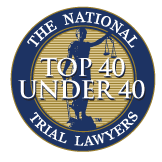How Best Can I Protect My Loved One From Elder Abuse?
Elder abuse has been called the number one public health problem by the World Trade Organization (WTO). The CDC has reported that hundreds of thousands of elderly people are abused each year, and that perhaps hundreds of thousands more are not willing or able to report maltreatment. How can we prevent this growing pandemic from affecting our loved ones?
The best way to prevent elder abuse is by closely monitoring the physical, emotional, and financial condition of a loved one who is in a nursing home. You have to be there with them. Speak to them. Listen to their concerns and try to separate the everyday complaints we all have from the early or full blown signs of neglect.
Signs and Symptoms of Nursing Home Maltreatment
The most common signs and symptoms of nursing home abuse and neglect include:
Basic needs not being met. If you’re loved one seems dehydrated or malnourished, or reports going hungry or thirsty for long periods of time, their basic needs are being neglected.
Medical needs not being met. Many elderly persons need a significant amount of medication and medical care to stay healthy and happy. On a more basic level, bedridden residents will need to be moved and turned to avoid telltale signs of neglect like bedsores or pressure sores.
Poor personal hygiene. If your loved one is not being bathed and groomed regularly, not only does this constitute a mild form of neglect, but there may also be more nefarious forms of neglect going on that you are not aware of.
Emotional needs not being met. These signs can be the most difficult or painful to recognize. Older persons living in a nursing home are prone to loneliness and depression. Unfriendly or outright cruel staff can do as much damage emotionally to an elder person as poor medical treatment.
Root Causes of Nursing Home Abuse and Neglect
The nursing home industry is a multibillion dollar enterprise - and growing every day. As our population ages, the nursing home industry will strain to cope with the tremendous influx of new residents while preserving goods standards of care as well as their profit margins. Already we have seen the nefarious effects of nursing home overpopulation and/or staff cuts. Indeed, while staff members are often the direct perpetrators of elder abuse, their actions are often the result of more “systemic” problems within the nursing home, such as lack of training, overwork, or lack of supervision. Under the theory of vicarious liability, nursing homes may be liable for staff misconduct.
Pennsylvania & New Jersey Nursing Home Law Firm
If you or anyone you know has been a victim of nursing home misconduct, abuse, or neglect, please contact our experienced elder abuse attorneys immediately toll-free at 1-855-462-3330 or by using our online contact form.




